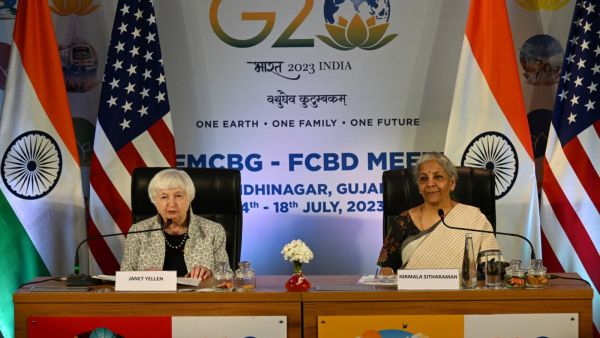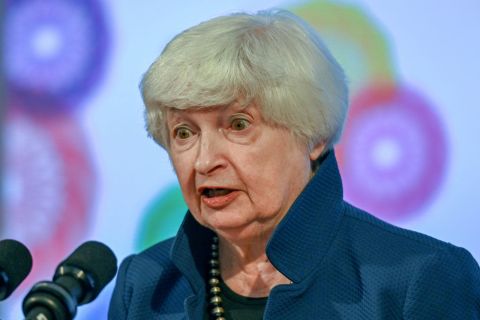US, Japan at G20: no trade-off between Ukraine aid, global economy
ALBAWABA – Finance ministers and central bank chiefs of the Group of 20 (G20) nations kicked off the first session on global debt, restructuring, multilateral bank reform, and climate finance Monday, according to Agence France-Presse (AFP).
Indian Finance Minister Nirmala Sitharaman, chair and host of the summit in Gandhinagar, inaugurated the session today, part of a two-day agenda.
She highlighted to finance leaders "the responsibility we have... to steer the global economy towards strong, sustainable, balanced and inclusive growth".
Chief on the agenda is "facilitating consensus to intractable issues associated with rising indebtedness", according to Sitharaman. Who was quoted speaking to reporters alongside United States (US) Treasury Secretary Janet Yellen.
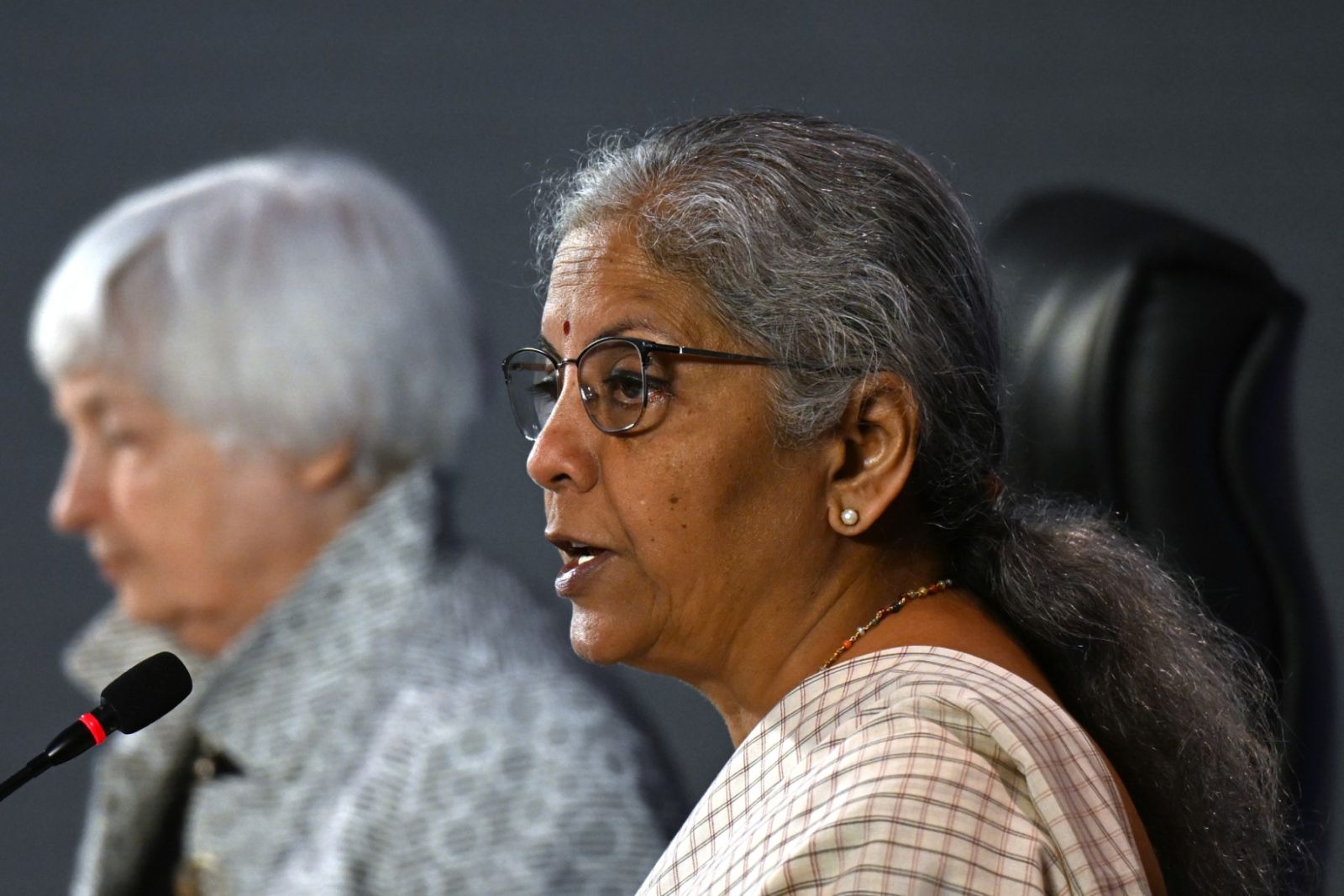
The agenda will also focus on "critical global issues such as strengthening the multilateral development banks and taking coordinated climate action", she added.
More so, the Indian finance leader also cited work to tackle debt distress among the world's poorest countries. She underlined ongoing debt restructuring progress in Zambia, which she had discussed when visiting Beijing this month.
On her part, Yellen said that "the world is looking to the G20 to make progress on key challenges like climate change and pandemics as part of our work to strengthen the global economy."
The sessions will also address reforming multilateral development banks, cryptocurrency regulations, and making access to financing to mitigate and adapt to the impact of climate change easier.
Debt restructuring: What’s taking so long?
China is reportedly resisting efforts to arrive at a common multilateral understanding on such issues, unnamed officials have told AFP.
Notably, China is the world’s second-largest economy and a major lender to several stressed, low-income countries in Asia and Africa.
Yellen said Sunday that the Zambia deal had taken "too long to negotiate", adding that she hopes debt treatments for Ghana and Sri Lanka could be "finalised quickly".
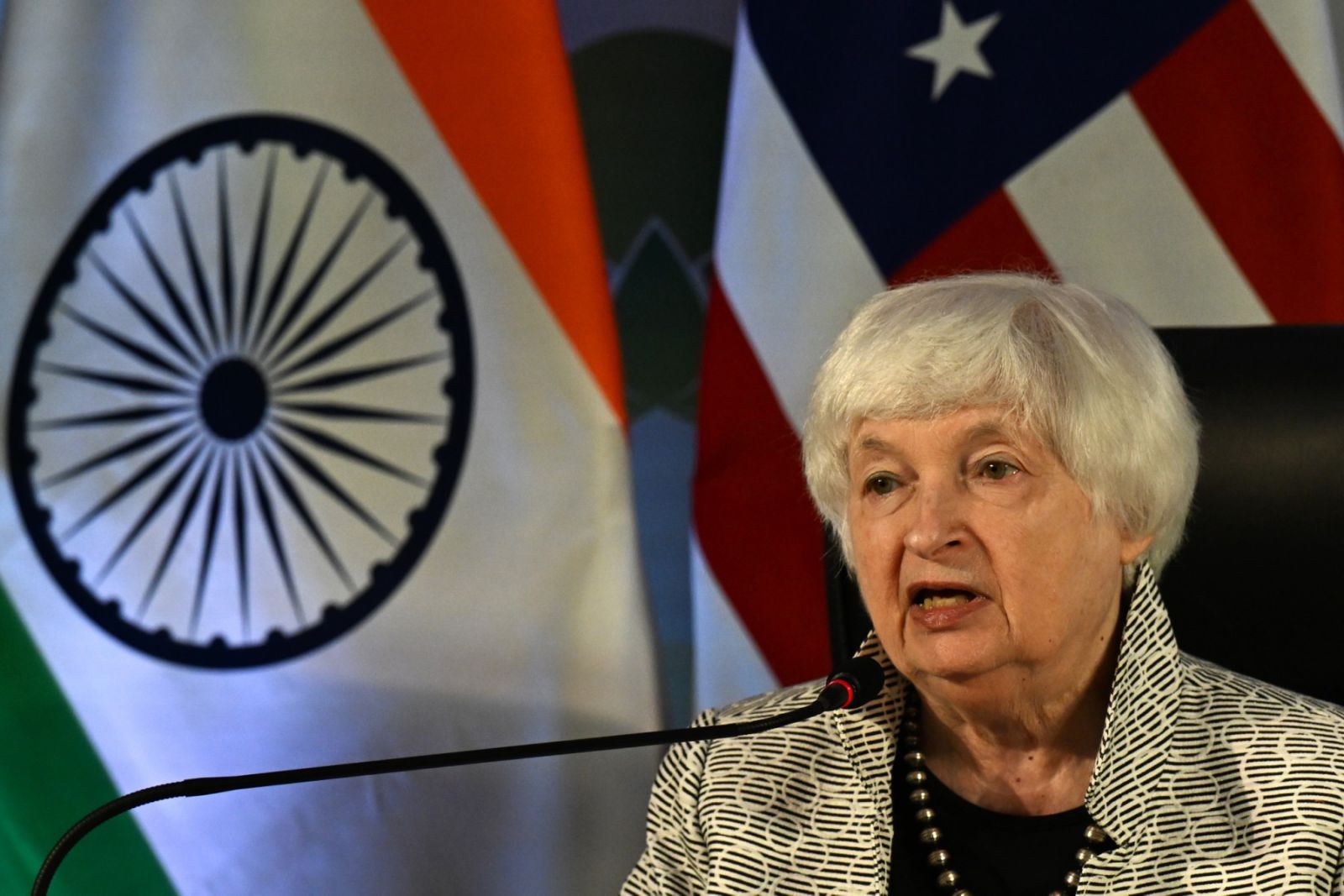
"We should apply the common principles we agreed to in Zambia's case in other cases, rather than starting at zero every time," Yellen said. "And we must go faster."
More than half of all low-income countries are near or in debt distress, double the figures of 2015, Yellen added.
A top official from G20 chair India said there had been a "not so encouraging response" from Beijing on shared debt understanding, AFP reported.
Several economies have struggled to keep up after a double blow from the coronavirus pandemic and the fallout from Russia's war in Ukraine – which hit global fuel and commodity prices.
China is a major creditor in the case of some of these countries.
Climate finance
In the Global North, climate change means emissions reductions," World Bank chief Ajay Banga said in an op-ed ahead of the meeting.
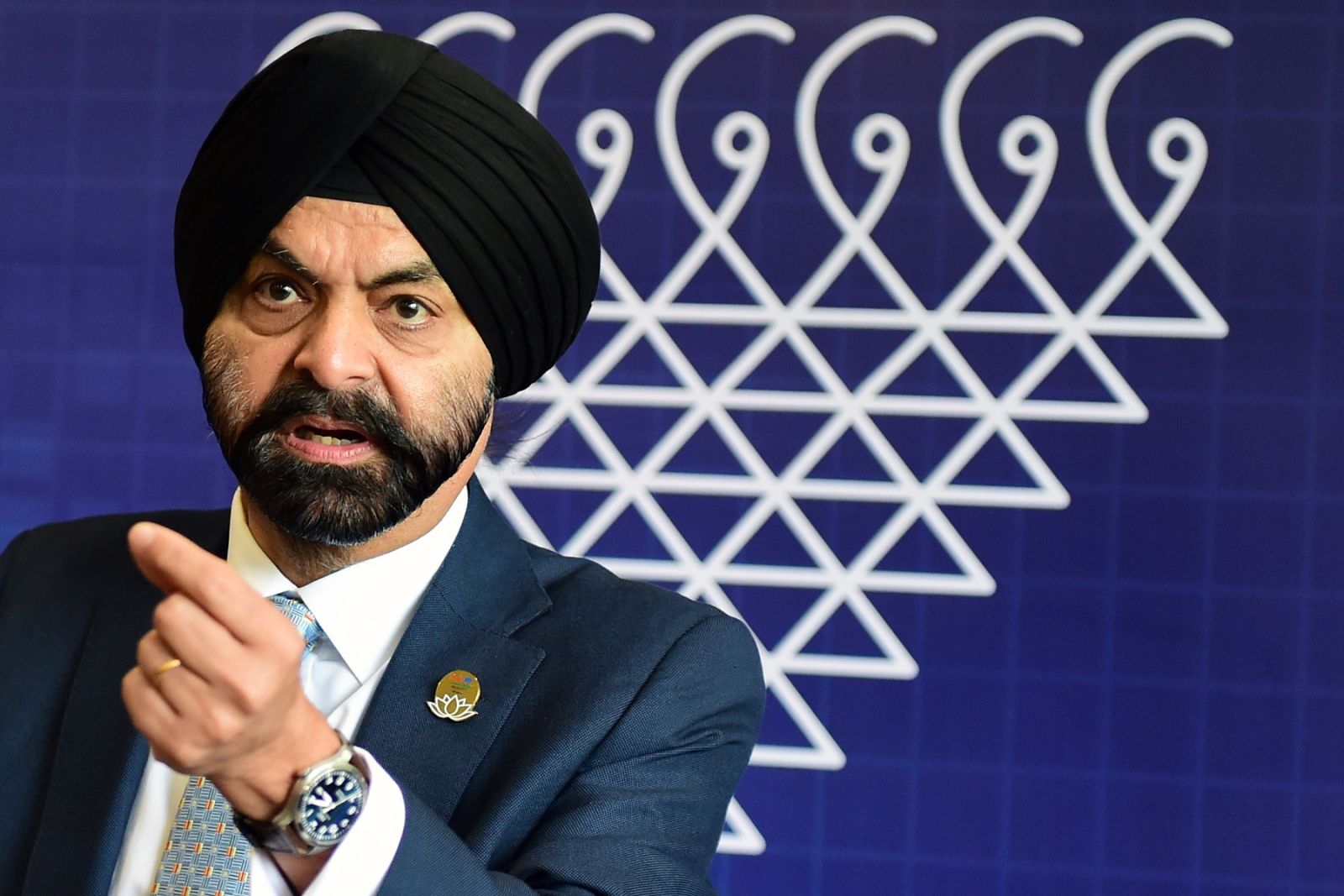
"But in the Global South, it is a matter of survival, because hurricanes are stronger, heat-resistant seeds are in short supply, drought is destroying farms and towns, and floods are washing away decades of progress."
As for what is being done to address climate financing challenges, news agencies reported only that the agenda will address easing access to financing to mitigate and adapt to the impact of climate change. That's it,
G20: Cross-border taxation
As many as 138 countries had arrived at an initial framework for a fairer distribution of tax revenues from multinational firms last week, which will be delivered at the summit, AFP confirmed. This is the first of multiple steps to realize this goal.
The deal stipulates setting a minimum 15 percent tax on large global firms along, with an additional 25 percent tax on "excess profits."
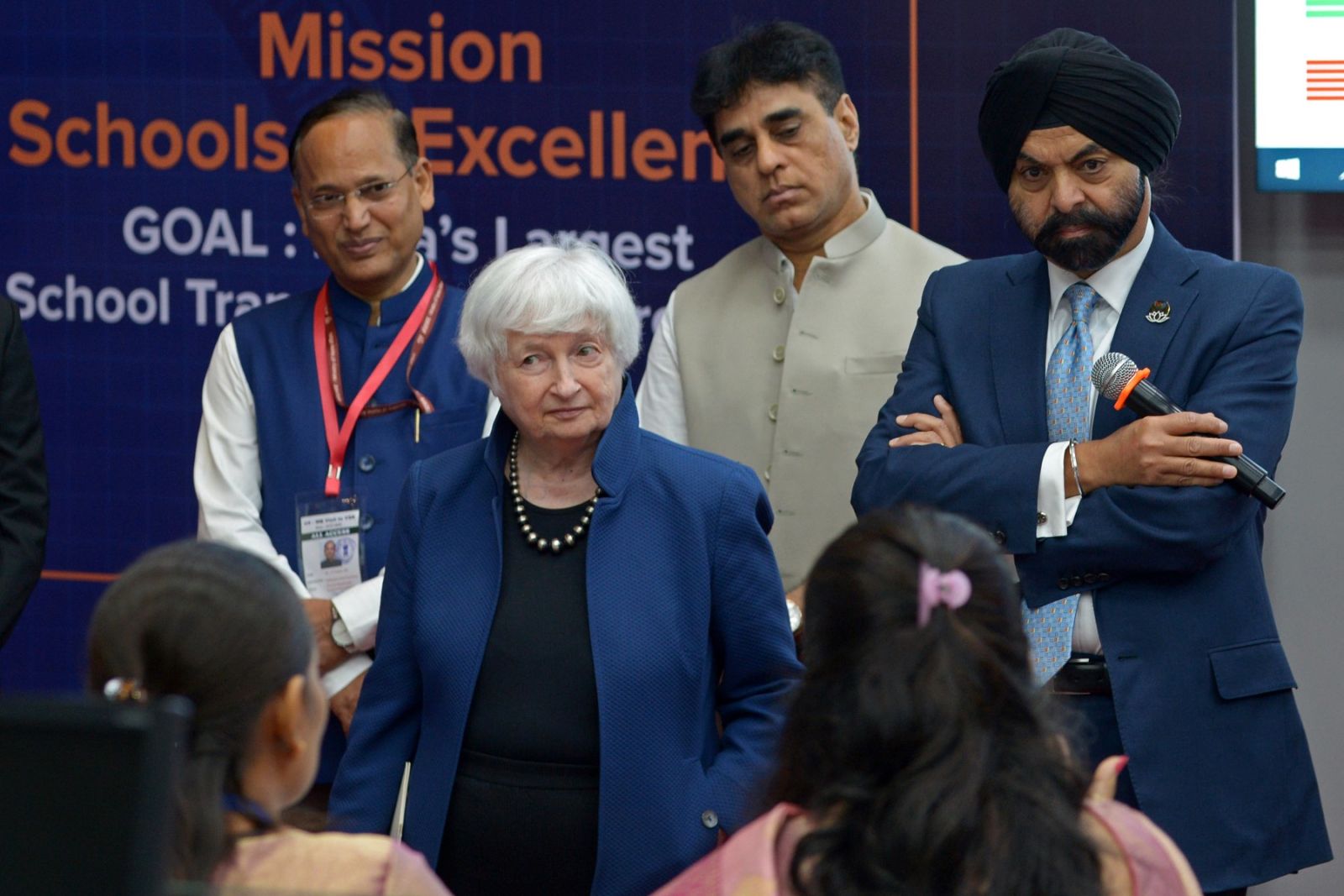
This new framework addresses a very important issue, which is that multinational entities, especially tech firms, are currently able to easily shift profits to low-tax rate countries to avoid paying high taxes. Even though they carry out most of their intensive operations in other, high-tax rate countries, and only small parts of their activities are run in the low-tax rate country.
G20 Summit on finance: Too many distractions
Meanwhile, concern is building, according to AFP, that developed Group of Seven (G7) nations, also members of the G20, will focus too much on Russia’s invasion of Ukraine. So much that it would derail a final consensus agreement.
In a statement on Sunday, Yellen addressed this issue, reassuring that she will “push back” on criticism that there will be a tradeoff between aid to Kyiv and developing nations.
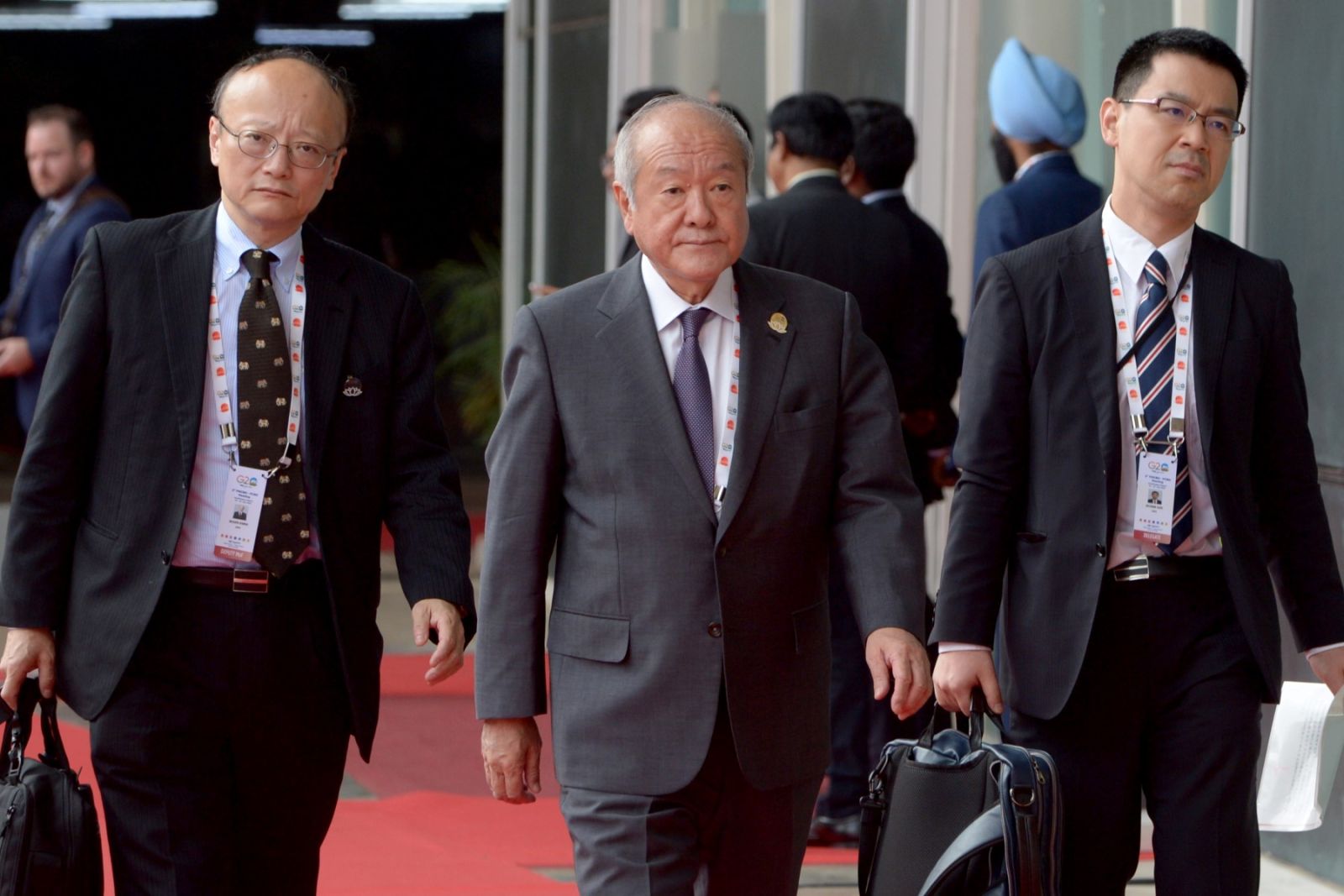
Alongside Yellen, Japan's Finance Minister Shunichi Suzuki also "reconfirmed the G7's unshakeable support" to Ukraine. He added that Moscow should "pay long-term reconstruction costs".
In the meantime, Yellen has repeatedly said that supporting Ukraine is the single best way to boost the global economy, underlining that the two issues are inseparable.
Business on the side
The US is working to develop an investment platform with India to lower the cost of capital and increase private investment to fast-track India's energy transition, Yellen said on Monday.
After a bilateral meeting with India's Sitharaman on the sidelines of a G20 meeting, Yellen said the two nations have been collaborating across a range of economic issues. These issues include commercial and technological collaboration and strengthening supply chains, according to Bloomberg.
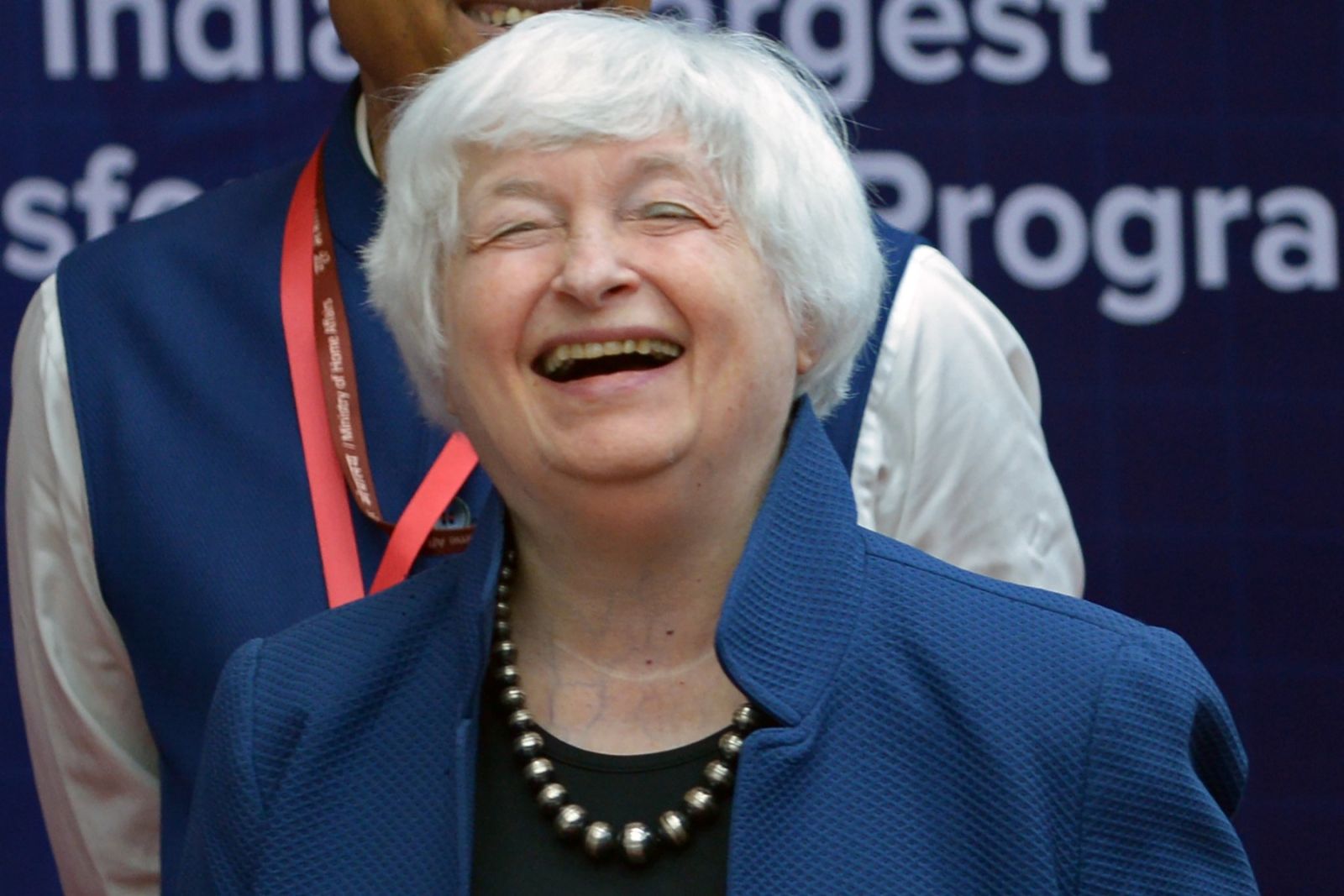
"In particular, we look forward to working with India on an investment platform to deliver a lower cost of capital and increased private investment to speed India's energy transition," she said.
The visit is Yellen's third to India this year, indicating the growing closeness between the two countries.


